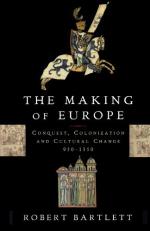|
This section contains 864 words (approx. 3 pages at 300 words per page) |

|
1770-1831
Idealist Philosopher
Education and Career. Georg Wilhelm Friedrich Hegel is often called the last great German Idealist philosopher; that is, his philosophy is based on the idea that underlying all historical experience is an abstract spirit transcending material forms. Born into an upper-middle-class Stuttgart family, Hegel began preparing for the Lutheran ministry at an early age. He studied theology at the University of Tubingen (1788-1793), where his friends included philosopher Friedrich Schelling (1775-1854) and poet Friedrich Holderlin (1770-1843). During his student years, he became acquainted with and influenced by the writings of Immanuel Kant (1724-1804). In time, however, Hegel became dissatisfied not only with Kant but with the field of theology, preferring instead to study not religion but the whole of reality. After leaving Tubingen, Hegel worked as a tutor in Bern and Frankfurt until 1799, when an inheritance from his father gave him...
|
This section contains 864 words (approx. 3 pages at 300 words per page) |

|




